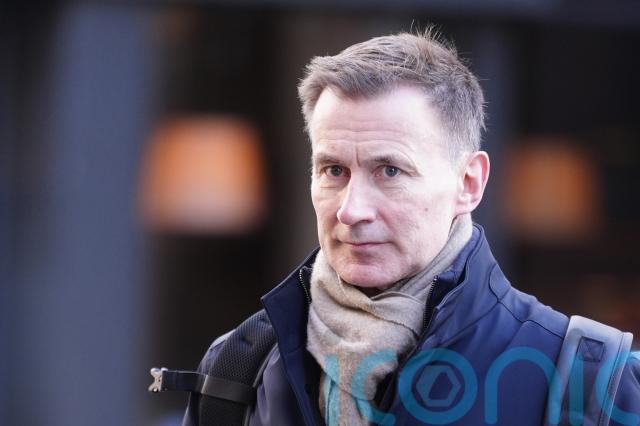
Parents are having to run a “gauntlet of horror” to get support for their children who have special educational needs and disabilities (Send), Motherland star Anna Maxwell Martin has said.
The actor, who has navigated the system as a parent, said early intervention for children and an attitude of kindness and compassion from all those involved were key.
Further branding the process “brutalising”, she said children were being written off amid a “ridiculous” punitive approach involving fines for non-attendance, and suspensions and exclusions related to behaviour.
She told BBC Radio Four’s Today programme: “We know that if there is better early intervention in terms of supporting the individual needs of children, valuing them, valuing their contribution, that actually, if we put more money there, we can see off fighting a lot of the fires later on.
“We know that adolescence is really difficult. The transition to secondary is really, really difficult. So let’s just put kindness and compassion at the focus of what we do, rather than this gauntlet of horror to get any kind of support for your child. It shouldn’t be that way.”
She pleaded for “some of the stress (to be taken) out of this journey”, for parents and children, describing the process to try and get extra help as “really brutalising”.
Put to her that “brutalising” was a very powerful word to use, she said: “I fully, fully mean it, and I inhabit it. It is brutalising. And there’s a lot of shame. We need to prioritise our children. They are the cornerstone of every single thing we do. They are our greatest asset. We are writing them off so quickly, you know, let’s just make it easier to access help.”

Ms Maxwell Martin also said “shocking” levels of child poverty needed to be addressed as “unless we deal with that, we’re not going to get anywhere”, citing factors outside the classroom such as hunger and lack of warm clothes leading to children feeling shame.
The Government is expected to published its child poverty strategy this autumn, having been delayed from the spring.
It is also expected to publish a White Paper sometime in the autumn detailing how it will reform support for children and young people with Send.
The Disabled Children’s Partnership (DCP), which includes more than 130 charities and parent groups, has previously called for the Government to ensure there is “legally guaranteed support” for every child who needs it, with the current Send support arrangements put on a statutory footing.
The DCP has also said the reforms must not remove or dilute legal rights and protections for children with special educational needs and disabilities.
There have been concerns that education, health and care plans (EHCPs) – which set out the specialist support a young person requires for their needs – might be slashed under the reforms.
EHCPs are legal documents for children and young people up to the age of 25 which identify their educational, health and social needs, and set out the extra support required.
The latest figures, published by the Department for Education (DfE) in June, showed that more than 1.7 million pupils in England have special educational needs.
The percentage of pupils with special educational needs support – but without an EHC plan – rose to 14.2%, from 13.6% in 2024.
The percentage of pupils with an EHC plan had increased to 5.3%, from 4.8% in 2024, the DfE said.
A report last month by the Policy Exchange think tank said the growing number of children requiring Send help was placing huge pressure on support services.
In a foreword, former health secretary Sir Jeremy Hunt backed calls for radical reform of the system, arguing that young people were being overdiagnosed with mental health conditions.
The report, titled Out Of Control, argued that definitions of mental ill health and neurodivergence have been socially expanded, leading to the system being overwhelmed.
Meanwhile, Government figures released in July showed suspensions and exclusions at schools in England rose to a record high in 2023/24.
The latest DfE figures show that while the overall absence rate was lower in autumn 2024/25 than it was the previous year, the number of pupils severely absent increased from 142,000 in autumn 2023/24 to 148,000 in autumn 2024/25.
A DfE spokesperson said: “This Government inherited a Send system left on its knees – which is why we are listening to parents and looking at changes to enable more children to thrive in their local school.
“We’re already making progress to deliver change across the Send system, from £740 million investment to encourage councils to create more specialist places in mainstream schools to earlier intervention through placing Send leads in 1,000 of our planned Best Start Family Hubs.
“Alongside this, we’re putting a further £3.7 billion into schools’ budgets to ensure all children receive the additional support they need and will set out our full plans in the Schools White Paper.”
Subscribe or register today to discover more from DonegalLive.ie
Buy the e-paper of the Donegal Democrat, Donegal People's Press, Donegal Post and Inish Times here for instant access to Donegal's premier news titles.
Keep up with the latest news from Donegal with our daily newsletter featuring the most important stories of the day delivered to your inbox every evening at 5pm.